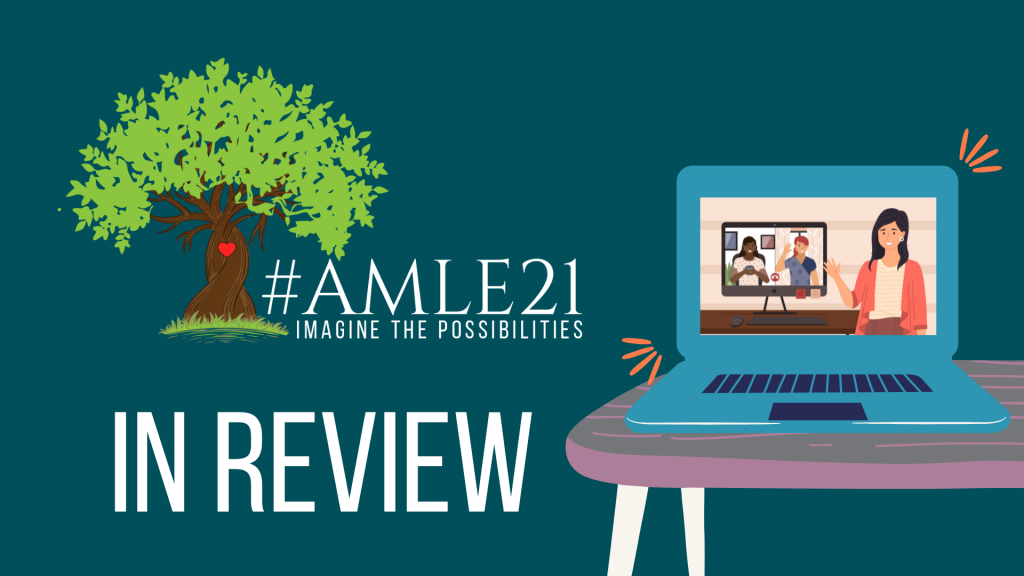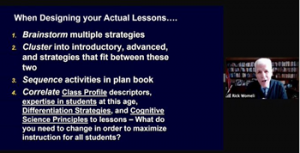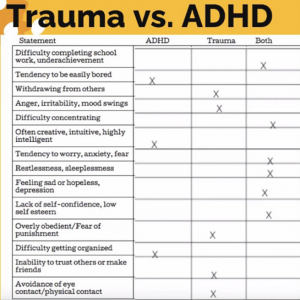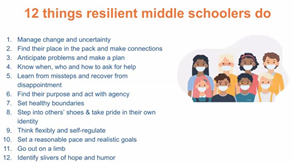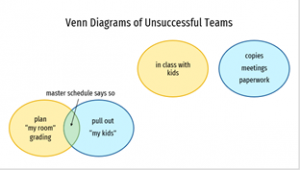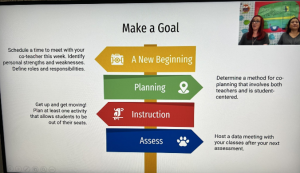What a fantastic weekend of inspiration, idea sharing, and connecting at #AMLE21!
Since not all of our members were able to join us online this weekend, we’ve collected some top insights from our 48th Annual Conference for Middle Level Education. Feeling #AMLE21 FOMO? You can still participate by registering for #AMLE21 On Demand with access to the conference platform and recorded sessions through December 17th. Learn more about #AMLE21 On Demand.
There were big announcements, like the kick off of the Solve Together 2.0 student contest and the launch of the Career Exploration in the Middle Grades Playbook Challenge. There was recognition of wonderful educators working tirelessly to advocate for the middle grades, like Linda Hopping, Nikki Woodson, and Lisa Harrison. And there was the shared collegiality of together figuring out how we can reach every student and create great schools.
- Amid an increase in highly-scripted curriculum and programs, Rick Wormeli reminded us of the power of a teacher as an instructional professional. “It’s pompous and reckless for districts to demand educators follow a purchased curriculum with no ability to deviate. The word fidelity is an insult to teachers, who are hired for their wisdom and creativity, not to read scripts.” Rick also provided great strategies for responding to a student’s, “I don’t know.” Instead try, “If you DID know, what would you say?”
- Jack Berkemeyer reminded us that the cornerstone of the middle school model is good teaming and provided excellent tips to help teams to help increase student engagement, improve relationships, and increase teacher.
- Laurie Barron and Patti Kinney emphasized that belonging is at the heart of classroom management. Need a great idea to promote positive relationships with students’ families? In each staff meeting, get two post cards to send home to connect with students and their families.
- Our students are struggling socially and emotionally amid another challenging school year. Kim Campbell reminded us that the characteristics of trauma can mimic those of ADHD and to be aware of the potential for misdiagnosis.
- Dr. Gholdy Muhammad delivered an impactful keynote address on providing culturally and historically responsive education. She reminded us of the importance of the words. The next time a student walks in late, instead of admonishing, try instead, “Now that you are here, we are more complete.”
-
- Do you feel valued in school?
- How would you describe yourself to someone who didn’t know you?
- What culture(s) do you identify with?
- Do you think it is important to learn about yourself at school?She emphasized the importance of benchmarking for identity and offered a helpful framework that empowers students to share their identities with us. Questions might include:
-
- Phyllis Fagell reminded us that our young adolescent students are resilient, and how to foster that resiliency.
- Shelli Casler-Failing and Taylor Norman helped us examine the value of productive struggle. “Let students use each other as a support system rather than just giving them the answers,” they explain. Giving answers promotes leaned helplessness, while not giving answers can build students into problem solvers.
- Dynamic duo Amber Benson and Ruby Voss outlined their strategy for effective co-teaching. Themes of communication, data review, and student-centeredness emerged.
- Our amazing student participants, from keynote panelists to our Great Middle School Student Voice Off Contest finalists, reminded us of the power of the student voice and what tremendous things can happen when we give them meaningful opportunities to share their own visions for their educations and their futures. As Voice Off finalist Riley Sipe put it, “No matter what language you speak, the middle school years are the ideal time to set students on the path to being good leaders.”
- A common theme of relationships emerged – not just between educator and student but between educators themselves as well. Relationships were at the heart of every topic. We heard about the role of relationship in culture, discipline, engagement, instruction, and staff development. Most importantly, we learned from all our presenters, sponsors, and thousands of participants, the value of each other and finding out we never have to go it alone.
